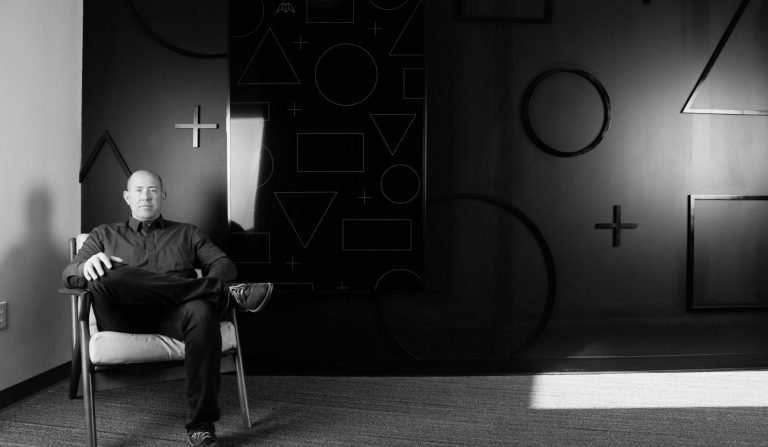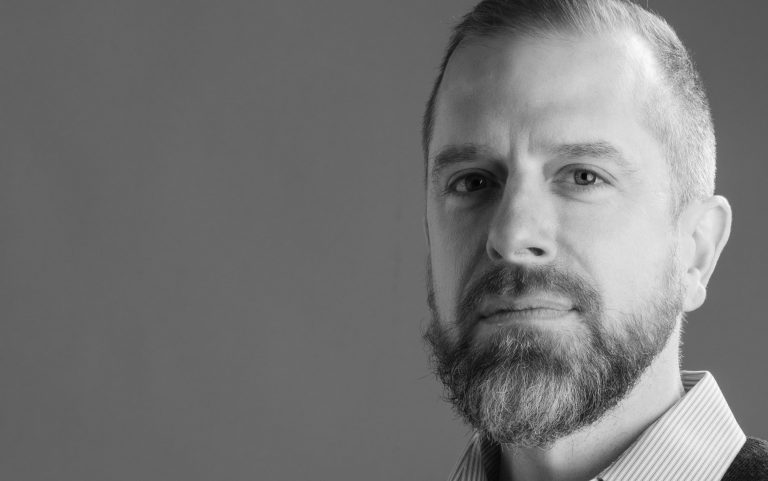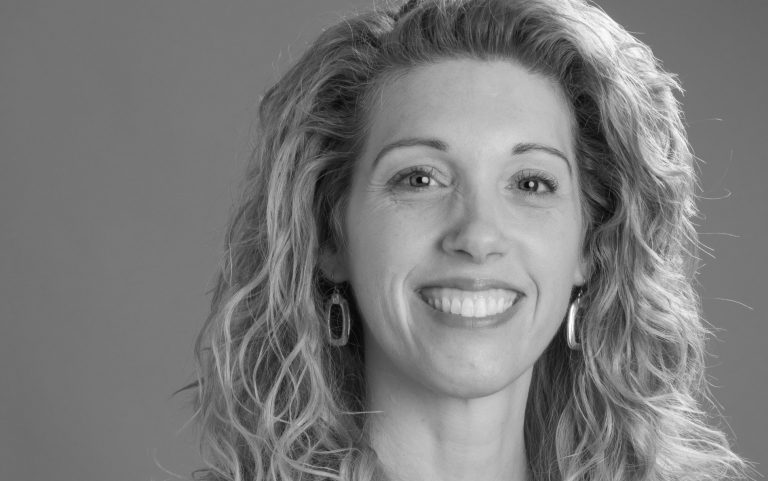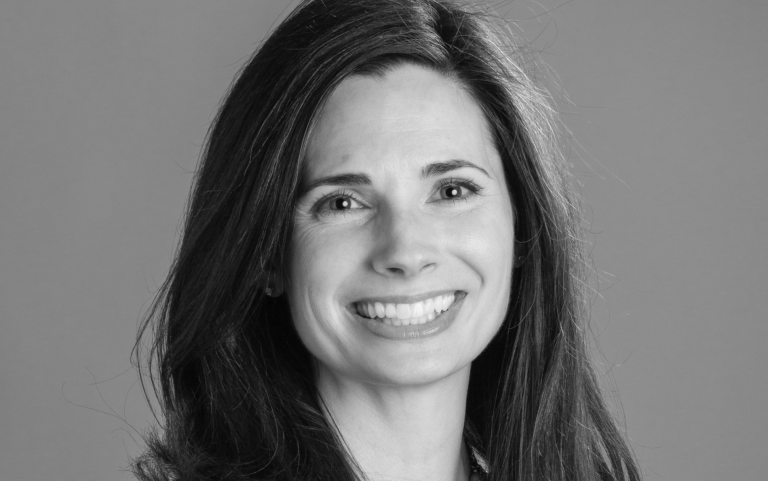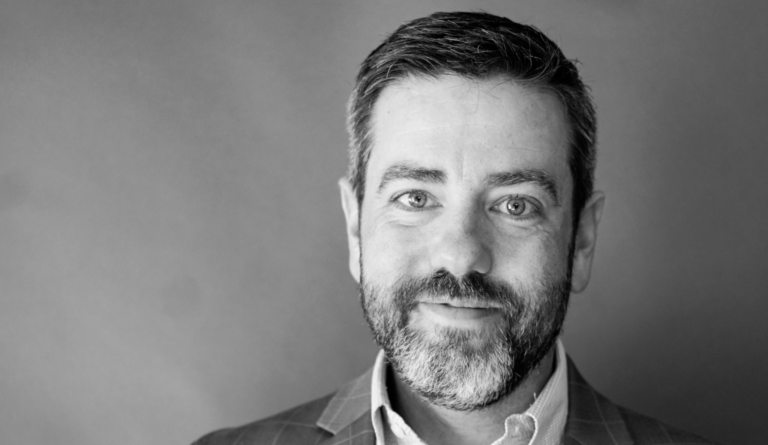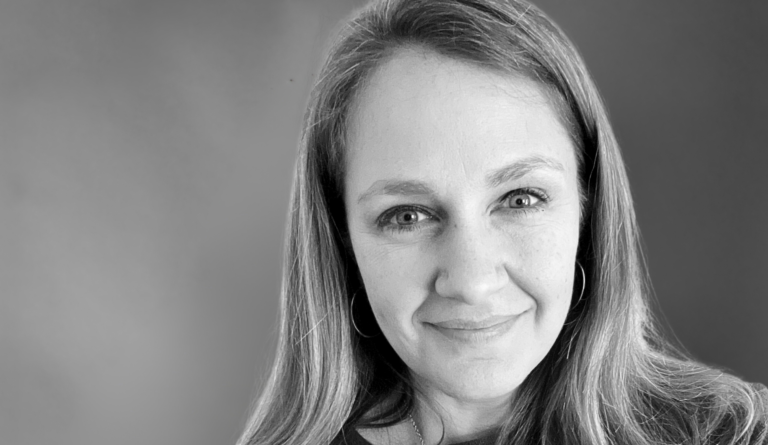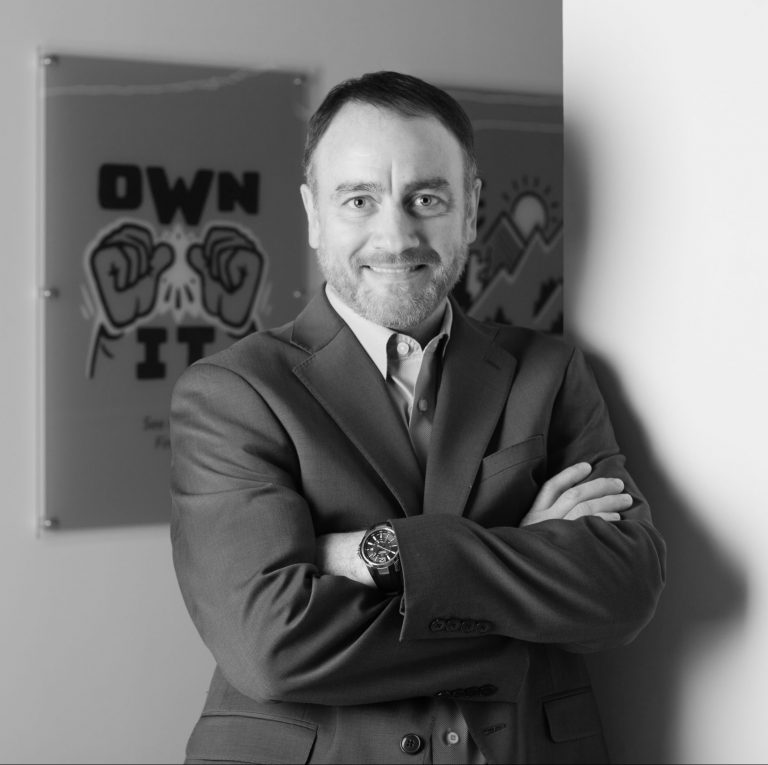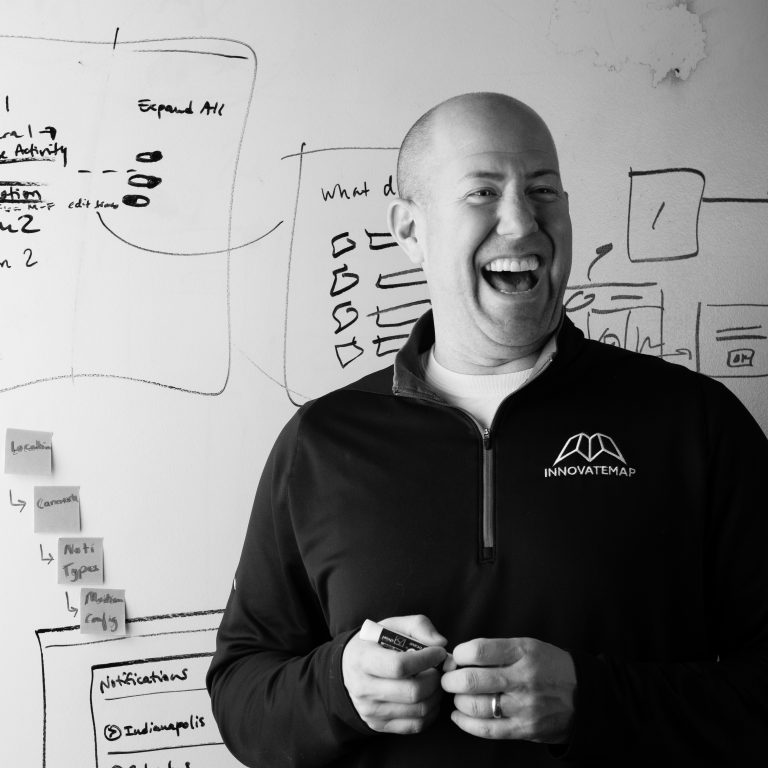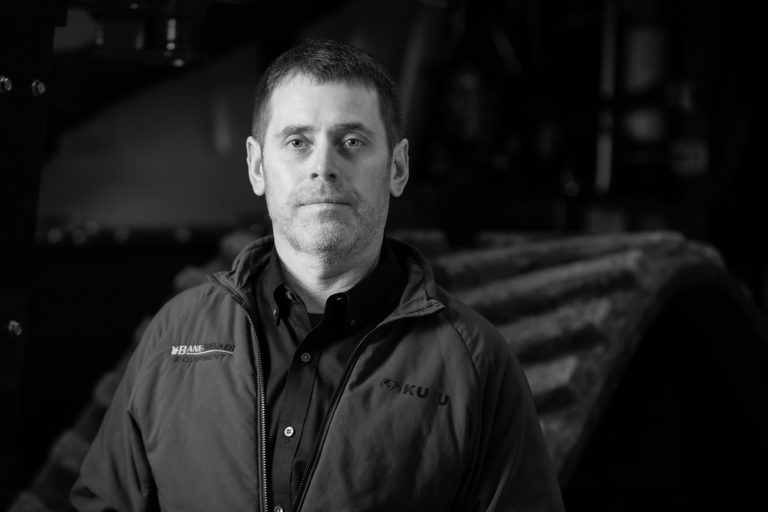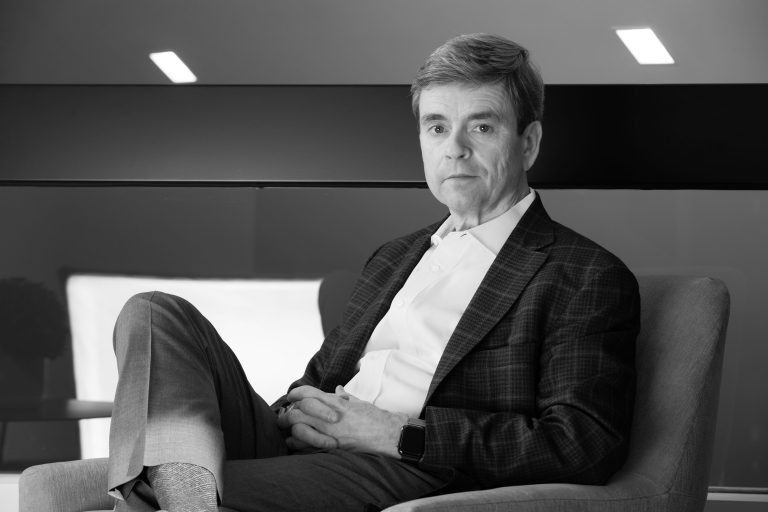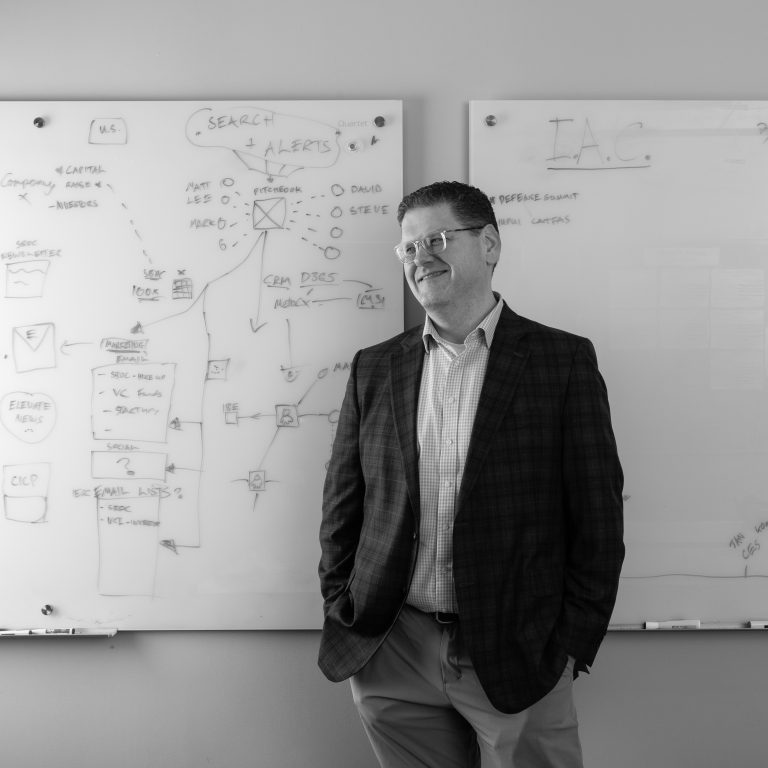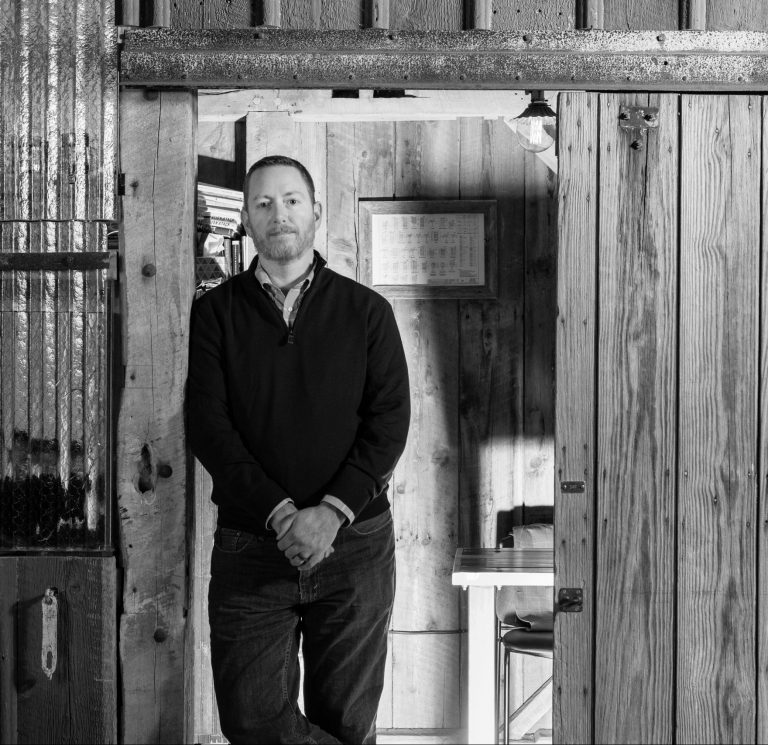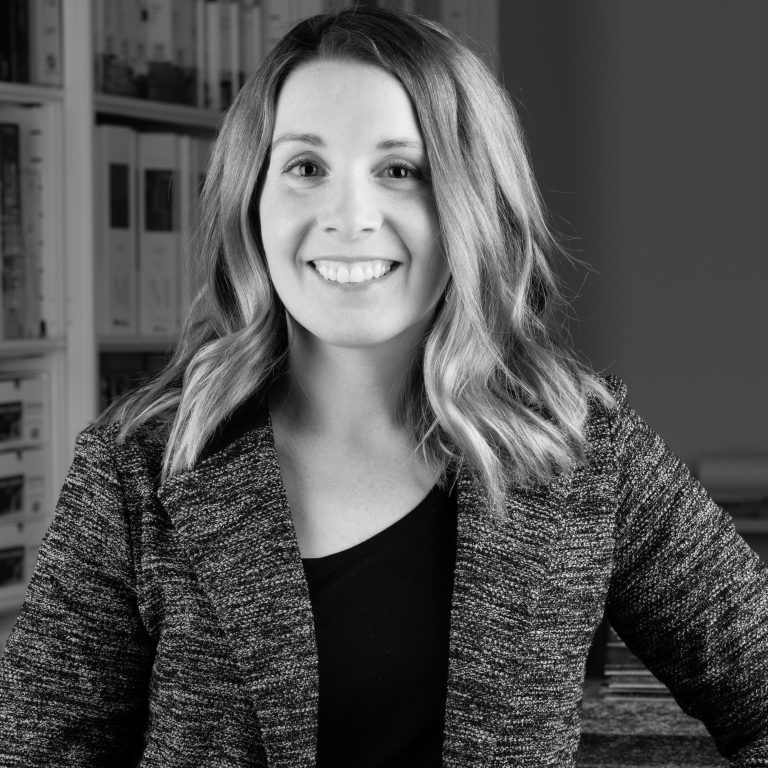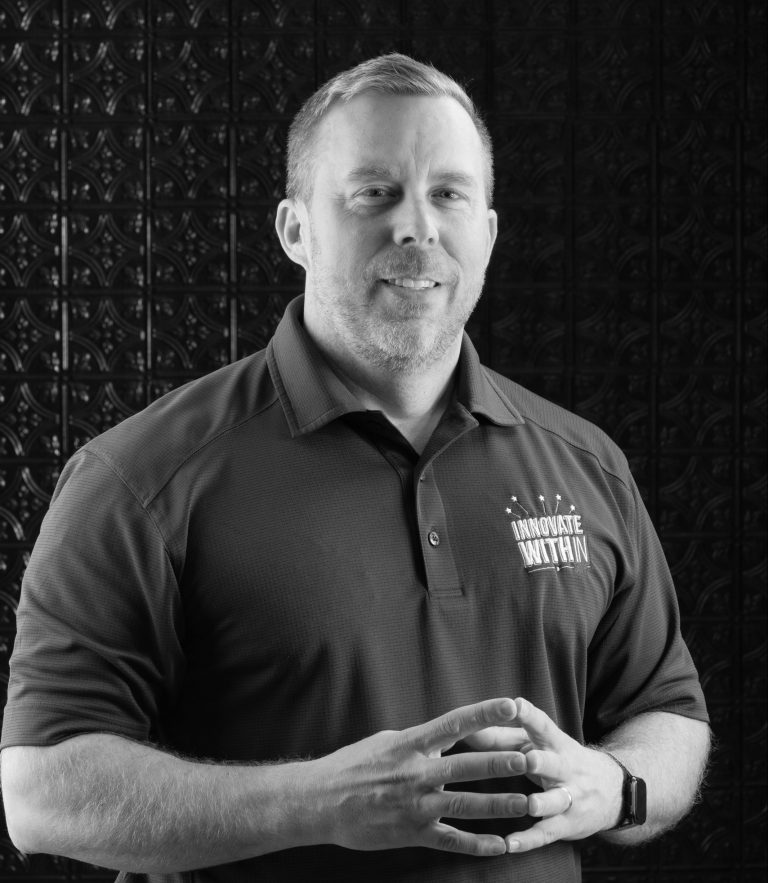Kairos helps CEOs and their teams outpace the complexity of their business. This is what they say about us:
We acquired another engineering company in 2017, and we instantly added 20 people to our ranks going into 2018. We were essentially a new company with two locations and people that didn’t know each other. We also started a Products group in addition to our existing Services line. Everyone had new roles, I was leading a larger team, and we needed to build a strong executive team.
Our work with Kairos was like basketball. A coach’s role is commenting on practice, commenting on live-fire situations, taking it offline when appropriate, providing feedback in the line of fire, and not letting the players off the hook. The coach can’t witness everything though. So Kairos encouraged us to give and get feedback from our peers. We now have an environment that allows for even deeper and more effective feedback than previous to our engagement with Kairos. This is not normal. Good companies want to do these things, but knowing how to do them is the hard part. What do we do? What order do we do them in, and how do we get better at doing them? It all feels like left-handed dribbling in the beginning. We got the most value out of learning to have real conversations, trust each other, learn where our lanes are, what we’re responsible for, and to take the first step in a journey of holding each other accountable.
As a CEO, the thing that’s stuck with me is Kairos’ encouragement to lead every day. It’s not a one-time event. Leading isn’t just running to the fire. It’s staying around the fire until your hands are burning and your brain is on fire. The other thing that came out of our coaching is that everything I say as a CEO is amplified through an imaginary megaphone, and that was a new learning for me. Ultimately, lack of clarity in the organization is my responsibility.
Scott Whitlock, CEO
![]()
What’s different about Kairos? CEO-driven, capacity-building, transformative change. That’s different.
Working with Kairos, I learned that real change starts with the CEO. But it’s not for just any CEO. It’s too easy to say, “Not my problem. Hey, professionals, go fix these people.” And that could create the kinds of tactical improvement that executives could learn in a classroom or from a TED talk. But Kairos convinced me: real capacity-building and transformative change starts with the CEO.
Through this work, I have built more capacity. That was the value proposition that intrigued me all along. I was skeptical at first, but I am in a much better place today than a year ago. There were cultural or process changes that I resisted that were long overdue, but I resisted. Now I am doing more of the things I should be doing (values-clarification, relationship-building, forward-thinking, planning) and less of what I shouldn’t (unnecessary meetings, crisis/emergency mentality, busy work).
Of course, the growth didn’t stop with me. Having our executives work with a team of Kairos coaches elevates the problems that we can tackle as a group: it goes from “Mike problems” to company problems. Collaborating as a team has been more powerful because we bond and share and get vulnerable and laugh at the “inside jokes” of our particular flavors of self-sabotage. We give each other very honest feedback and that adds to the power. Doing the work as a team creates more impact. It builds capacity.
I see many ways that Kairos and Innovatemap align in our thinking. We both have deep respect for the individual as a human being, and we see everyone as capable of growth. A core shared value is partnership. Kairos has skin in the game. We’re in this together. There is deep care about mutual outcomes.
Kairos coaches exhibit care, availability, and presence. They really care about improvement– it’s not just a job for them. That’s unique. I doubted we could find the right match for all the different personalities on my team, but my executive team members adore their Kairos coaches. When I see how happy my executives are, how much growth there has been, how much they put into it and how positively they speak of it, I feel great about my decision to work with Kairos.
Mike Reynolds, CEO

To be a good fit to work with Kairos, you must have will, grit, and the fortitude to stick with it. It’s not an easy path to go down. But it can be a life-changing path for not only the CEO or President, but also for your executives and the entire company.
Don’t work with Kairos if you’re a CEO that thinks you’ve got it all figured out, or are resistant to a different way of looking at leading your company. If you’re a CEO who’s armored up and not open to being vulnerable, this work would be challenging for you.
Working with Kairos can be a little scary– you learn some things about yourself that can scare you. It’s like stepping off a cliff. But if you’re open to really digging into what scares you, the opportunities are boundless.
Kairos has helped me better understand who I am. We’ve done a lot of work around the Enneagram, and I think it has been very effective in helping me become a better leader– and on a personal basis, I’ve become a better husband and father. I get a lot of feedback from my team about self-recognition and a better understanding of why they do some of the things that they do– why they have some of the habits that they have. It has also helped the team recognize why they interact with one another in ways that they do, in both positive and negative ways.
I have twelve members on my team, and I have every Enneagram type except for one on the team. Each one of the coaches on the Kairos team provides a different perspective and has a unique personality. That helps with a team as diverse as mine.
There’s a tremendous amount of alignment between our organization and Kairos around the importance of trust. When we first started working with Kairos, I’m not sure that I totally understood trust and how much it means– not only to individuals but to teams. There’s an easy working relationship with Kairos. When I have worked with other consulting groups in different aspects of our business, it just felt off. It’s more intimate with the Kairos team. I also appreciate that we can dig into issues of faith, and the more that we dig into this work, the more I appreciate that aspect of our work together.
It’s lonely at the top. I didn’t understand that when I transitioned into the role of President of Bane-Welker. It has really been critical to have a Kairos coach for when the going gets tough. I truly appreciate that. Each and every one of my executives would say the same thing for their Kairos coaches. It has been phenomenal.
Jason Bane, President
![]()
I came into my current role as CEO of Intelligent Fiber Network in the middle of 2017. We had recently signed the largest commercial contract in our company’s history with a very large healthcare provider.
Failure was not an option.
We’d grown to a point where we were starting to work more across functions. We had added new people and started to define our values. I knew that one of the first things we had to do was to develop leaders, including myself. We had people who were extraordinarily talented in their individual field, but didn’t have much experience with how to get teams working well together.
I realized we had a lot of work to do, first and foremost, to grow this team. We engaged Kairos to coach our executives. Kairos works with a really interesting combination of blunt force and empathy, and it’s remarkable. It is very much tailored to you. I never felt like I was just getting a formula handed to me, and they were checking boxes along the way. They take you where you are and work to bring out excellence.
Kairos doesn’t let executives wallow in comfort. It’s not a swaddling experience. It’s a challenging experience, but it’s done with compassion.
I give a lot of credit to Kairos for the way they helped our executives understand themselves, and how they show up in the organization. Personally, the Kairos experience has enabled me to have honest, critical conversation in a more direct way. It’s been transformative coming to work every day armed with much better knowledge of myself and how my own predispositions can limit our success. That’s invaluable to me.
Jim Turner, CEO
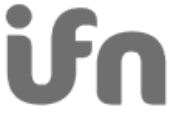
As a young leader, one of the most challenging issues I encountered was team cohesion and “buy in” into the company’s mission. Everyone on the senior leadership team was talented and qualified for the positions they held, but they were not a true team. As a collection of individuals, we were prone to point the finger at others on our own team when business challenges developed.
Within that context, our HR leader encouraged meetings with several external consultants to resolve or at least improve the interpersonal dynamics. But each consultant had a gap in their proposal that they never realized: they were trying to address behaviors, routines, or personality types, not underlying motivations and fears. That’s to say that they were focused on the superficial, even if they were claiming to be addressing deeper issues.
Thankfully, I met Chip at a random business development mixer, and immediately knew he was not a typical consultant or coach. His questions in the first three minutes pierced through to key issues, even as I was being obtuse and deflecting. His art of asking the relevant question without the typical fluff told me that his impact would be quick and results would come efficiently.
As we started to work with Kairos, Chip’s military and technical background helped establish immediate credibility with our engineering leadership. In particular, I asked Kairos to address the rising conflict between the Chief Engineer and the COO. Their relationship had devolved to a point where they were threatening each other physically and actively sabotaging the other’s efforts. The result was that the company was losing and, candidly, at risk of failing altogether.
Over the next six months, Chip actively coached the Chief Engineer, and asymmetrically coached the COO by asking him for input into the coaching of his adversary peer. The result was something that could have never been achieved by simply removing one of the two and replacing them with another person. The Chief Engineer grew into a true leader across various aspects of the organization, not just the engineers. The relationship between the two leaders harmonized and deepened to a degree of true friendship, where the two were actively rooting for each other and building off of creative ideas to bring them into reality. Fast forwarding eight years later, the two are still friends and work together on projects, even though they are now in different organizations. And the company itself was able to navigate choppy waters, thanks in large part to the combined leadership of the Chief Engineer and COO even after I left the CEO role.
The Kairos team is the only executive coaching service I will recommend. Their methods are not easy and absolutely will expose uncomfortable truth. The end result will depend on how you or your team accept that truth, allowing it to change yourselves as people first, and then as a company.
Dave Roberts, Former CEO, Enerdel + CEO, Applied Research Institute
![]()
Kairos doesn’t accept fixed and knee-jerk reactions. Other consultants and coaches have said to me, “Maybe I can help you with this, Mike.” I say, “No, I think I’m good.” They then demure and move on. My Kairos coach, however, said, “I don’t think you’re ok. I’m not buying it.” He forced a moment or reflection, because he saw something important that I couldn’t.
This kind of coaching is valuable for any CEO who isn’t wide awake to the pain that they’re feeling. The way Kairos comes alongside and holds up the mirror causes me to dig deeper and deal with what’s real.
As Managing Partner, I’ve always felt ultimately accountable for DeveloperTown. My Kairos coach guided me to the conclusion that I need a well-functioning leadership team to be able to execute against our vision. Historically I thought I could succeed in spite of my partners, and now we deal with the dysfunction and disagreement directly, instead of sweeping it under the rug.
It has generally been easy for me to be vulnerable when I recognized that I was wrong or that I overstepped, by acknowledging it explicitly, “Hey, I’m an idiot, and I shouldn’t have done that.” What I’ve not done historically is give other people real-time feedback when they’ve hurt me. One stupid little thing my Kairos coach taught me (that really stuck with me) is the importance of saying “Ouch.” I’ve always been comfortable admitting error, but it has been harder for me to point out when others’ behaviors aren’t working for me. I now recognize the effectiveness of nonjudgmentally holding up a mirror for others. My coach modeled this behavior and taught me its simple power.
Mike Kelly, Managing Partner

When we engaged Kairos, we weren’t in the middle of a crisis. Their work helped us deepen our trust as a leadership team, so when a tidal wave like a pandemic hit, we were able to row stronger together.
With five partners and a fast-paced environment, it was often easy to bypass tension—ignore it and move on. In 2019, we specifically wanted to build a strong foundation for trust and to grow in our ability to give feedback to one another. Through our work with Kairos, we were introduced to tools that helped us invite feedback and emboldened us to give it, even when it’s uncomfortable.
Kairos uses a personality tool that gave us deep insight into ourselves and greater compassion and understanding for each other. It allowed us to see one another in a way that we just hadn’t before. It gave us a valuable shared vocabulary for growth that we continue to use today.
With Kairos, there is no fluff. They were very honest. They ran to fires because for them this is about transformation. There was no surface level in anything. Working with Kairos is worth the time. It’s an intentional choice to make for the sake of growth. Kairos was invested in our growth; we weren’t just a project. That’s still evident in our relationship today.
Amanda Welu, Partner, DELV
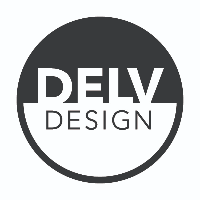
Becoming a CEO was the easy part. The hard part was navigating the hard decisions thereafter. The Kairos team brought powerful, reflective practices that helped our team build trust and candor. They were less focused on ‘fast wins,’ and more on long-term growth.
Navigating the hard decisions has required coaching, observation, and reflection. The Kairos team helped me not only grow as a leader, but provided perspective on how to manage and grow a team that is mission-driven.
The hard conversations are usually the best conversations–no one wants to admit when things need improvement. The Kairos team has excelled in preparing me to admit the weaknesses and to acknowledge that feedback is a gift.
Don Wettrick, President + Founder
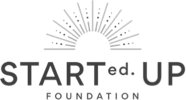
When You’re Ready:
Call or Text: 317-908-0136
Email: ready@kairosconsulting.com


